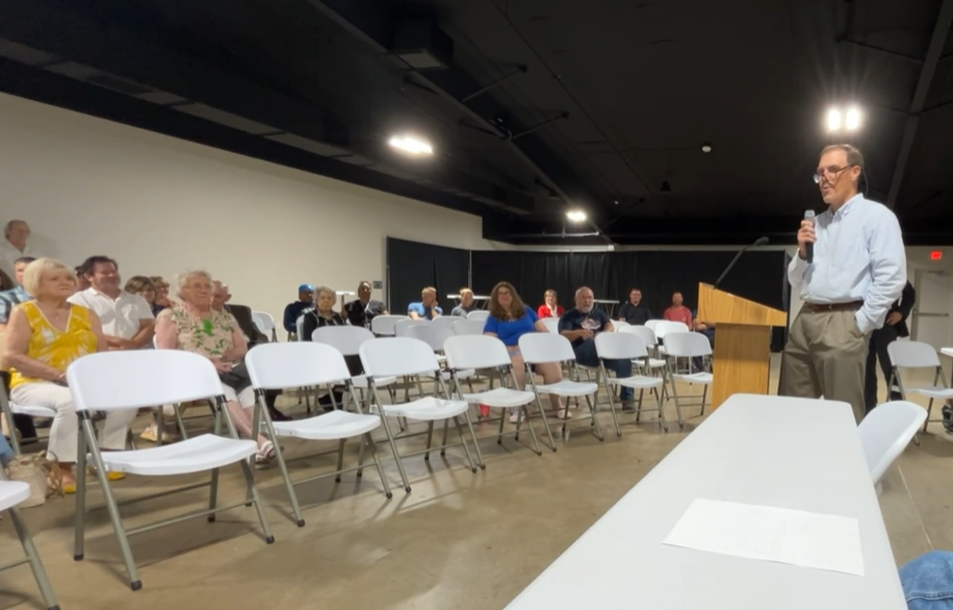Foundation Forward, Charters of Freedom: Caesar Rodney
Published 9:42 am Monday, May 1, 2023
|
Getting your Trinity Audio player ready...
|
Foundation Forward, Charters of Freedom — Founding Fathers and other Influencing Citizens. How They Served Our Country
This is an American history educational moment of those who made a difference during the Revolutionary War era and how they served our country.

David Streater
An admirable and unique individual, Caesar Rodney helped make the United States the influential nation it became.
Trending
Born on Oct. 7, 1728, in Jones Neck, Delaware, Caesar was the son of Caesar Rodney Sr., and Elizabeth. His parents ensured he was well educated at home, the Latin School in Philadelphia and the University of Pennsylvania.
Rodney’s beliefs in an independent America shone through during the Second Continental Congress. Delegates were considering a motion for independence. During the debate, some opposed each other; some switched their vote, while others were solidly opposed. Finally, Edward Rutledge of South Carolina directed this vote to be delayed by one day. The postponement was because Rodney, a formidable advocate for freedom, was called away to quell a British insurrection in his home state of Delaware.
An urgent communication was delivered to Rodney in Delaware.
The message told him of the dire predicament in Philadelphia: his ‘yea’ vote was critical to pass the motion for autonomy. On July 2, 1776 (a Tuesday), just before the day’s close of business for the Congress, Rodney made a spectacular entrance: “Almost unimaginably, he had ridden 80 miles through the night, changing horses several times [in a torrential rainstorm] to be there in time to cast his vote for independence.”
Soaking wet, exhausted and covered with mud, Caesar accomplished this feat despite lifelong physical defects and combating facial cancer. Rodney was tall and slim, with a small head, and sporting a scarf to cover his face to conceal the malady he was fighting.
Caesar led a responsible life from a young age when his father died. Among other activities, he managed the family farm and was a high sheriff, judge, member of the Stamp Act Congress, and the First and Second Congresses.
Battling ill health, Rodney still became a major general in the militia and signed the Declaration of Independence on Aug. 2, 1776.
Rodney was a visionary who was determined to see the colonies achieve nationhood and accomplished many notable acts under challenging circumstances. In his later years, Caesar supported the abolitionist movement and helped lay the groundwork for social advances. Buildings, schools and even marathons are named in his honor. Caesar Rodney was an altruistic Founding Father who served America honorably, establishing We the People.
Trending
Please visit your Charters of Freedom setting at 144 N. 2nd St., Albemarle. A Charters of Freedom setting consists of the Declaration of Independence, the United States Constitution and the Bill of Rights. They are on permanent display analogous to the Charters of Freedom in the National Archives, Washington, D.C. Please visit our website (FoundationForward.com) to learn more about all settings.
Teachers are encouraged to contact Dr. Streater for information and complementary student education materials to enhance experiential field trips to a Charters of Freedom settings. Please contact Dr. Streater ([email protected]) for engraved legacy paver information and complementary educational materials.
Dr. David Streater is the director of education for Foundation Forward, the organization which placed life-size replicas of the United States Constitution, Declaration of Independence and the Bill of Rights, also known as the Charters of Freedom, in downtown Albemarle. He is a retired college instructor/administrator and a retired probation and parole officer/administrator. In addition, he is a criminologist with an acute history interest, served in the Navy, is a resident of Burke County and is a graduate of Pfeiffer University.






